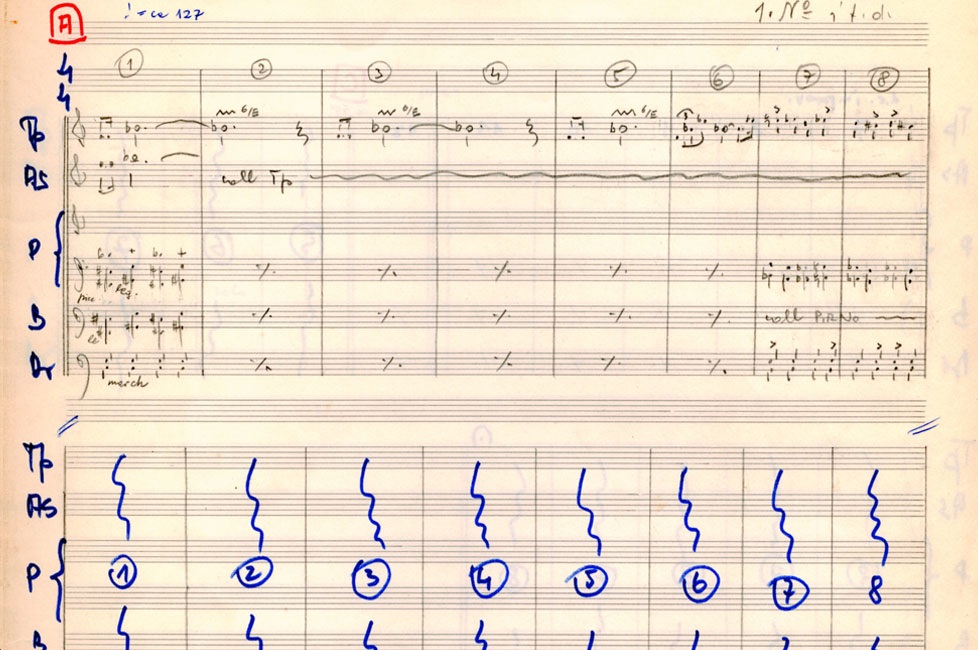Manuscripts of six unknown Komeda compositions from the My Sweet European Homeland project were found at the National Library in Warsaw during a detailed search of Krzysztof Komeda’s archive.
In October 1967, Krzysztof Komeda created the Jazz and Poetry project ‘Meine Süsse Europäische Heimat – My sweet European homeland’ in Baden-Baden. Komeda himself said that it was his most outstanding work. Joachim-Ernst Berendt wrote of Krzysztof Komeda’s compositions: “Never before have we had such beautiful, rich and emotional melodies on the disc!”.
The album features musical interpretations of poems by poets such as Czesław Miłosz, Zbigniew Herbert, Kazimierz Wierzyński and Zygmunt Ławrynowicz. However, not all of the pieces that Komeda composed for the occasion were ultimately included on the album. Krzysztof Barkiewicz of the National Library and musicologist Justyna Raczkowska discovered this fact while looking through the composer’s correspondence, which is held in the National Library’s archives.
Joachim-Ernst Berendt, a producer of the original album My Sweet European Homeland, wrote to Komeda about the selection of compositions. At the time, Komeda was in the United States and wrote music for Rosemary’s Baby. It was clear from this correspondence that there should be more notes than were included in the album. “And indeed, after careful analysis, we received six previously unknown compositions”, said Krzysztof Barkiewicz.
During a search of Komeda’s archives, the following pieces were found: “Jonah” to Zbigniew Herbert’s poem “Jonah”, “When the lamp of imagination goes out” to Adam Ważyk’s poem “Poem for Adults”, “Klasyk” to Zbigniew Herbert’s poetic prose “Klasyk”, “Jan Cherubin” to Mieczysław Jastrun’s poem “Jan Cherubin”, “Two of them” to Bolesław Leśmian’s poem “Dwoje ludzieńków” and “Miserere” to Krzysztof Kamil Baczyński’s poem “Miserere”, reports the National Library.
Adrian Andrzejewski





